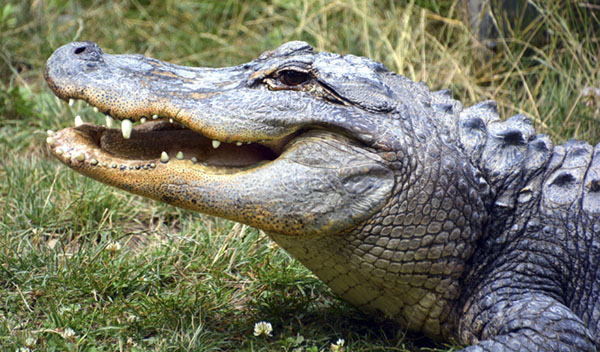
Alligator Sightings in Lakemont
May 26 2022
IF YOU SEE AN ALLIGATOR...
- If the alligator is not approaching people or otherwise posing an obvious threat, wait a few days if possible - even up to a week - before contacting TPWD. In spring and summer, alligators are moving to breed and find new habitat. Most of the alligators moving around are smaller ones that have been pushed out of their normal habitat by larger alligators. Usually, these smaller alligators will move further on in a week or two.
- If you hear an alligator hiss, it's a warning that you are too close.
- Alligators have a natural fear of humans, and usually begin a quick retreat when approached by people. If you have a close encounter with an alligator a few yards away, back away slowly. It is extremely rare for wild alligators to chase people, but they can run up to 35 miles per hour for short distances on land. Never make the mistake of thinking that an alligator is slow and lethargic. Alligators are extremely quick and agile and will defend themselves when cornered. A female protecting her nest might charge a person who gets close to the nest, but she would quickly return to the nest after the intruder left.
- It is not uncommon for alligators to bask along the banks of a pond or stream for extended periods of time. These alligators are usually warming their bodies; they are not actively hunting. Often times a basking alligator may be seen with its mouth open; this is a way to cool its body temperature down, since alligators do not pant or sweat. An approaching human should cause these alligators to retreat into the water. (In some cases, the alligator may be protecting a nest - see below.) However, an alligator may be considered a nuisance if it leaves the banks of the water body to spend time near homes, livestock pens, or other structures.
- If you walk near the water and an alligator comes straight toward you, especially if it comes out of the water, it is definitely a nuisance alligator that needs to be reported to TPWD. In many cases, these are alligators that have been fed by people or have been allowed to get human food.
- If you see an alligator while walking a pet make sure that your pet is on a leash and under your control. Your pet will naturally be curious, and the alligator may see an easy food source. Alligators have a keen sense of smell. In areas near alligator sightings it is wise to keep pets inside a fenced area or in the house for a few days, during which the alligator will often move on.
- If you see an alligator in the roadway, DO NOT attempt to move it! Notify local authorities so the alligator can be handled safely.
- If you see a large alligator in your favorite swimming hole or pond, do not swim with it. Although alligator attacks in Texas are rare, it can happen. The "attack" reports in Texas are usually more accurately described as "encounters." As with all outdoor activities, realize that wildlife encounters are a possibility.
- It is not uncommon for alligators to pursue top-water fishing lures, and this activity does not constitute a threat to humans. As with fish, alligators are attracted to these lures because they mimic natural food. Most alligators can be easily scared away from boats or fishing lures. However, alligators that repeatedly follow boats, canoes, or other watercraft, and/or maintain a close distance without submersing may be considered nuisance alligators.
- If you see a nuisance alligator, consider why it is there. Did someone clean fish and throw the heads into a pond or river? If so, they created a potential alligator problem and could be breaking state regulations. Since October 1, 2003, it has been a Class C misdemeanor punishable by a fine of up to $500 for anyone caught feeding an alligator.
For the full article please click the following link:







